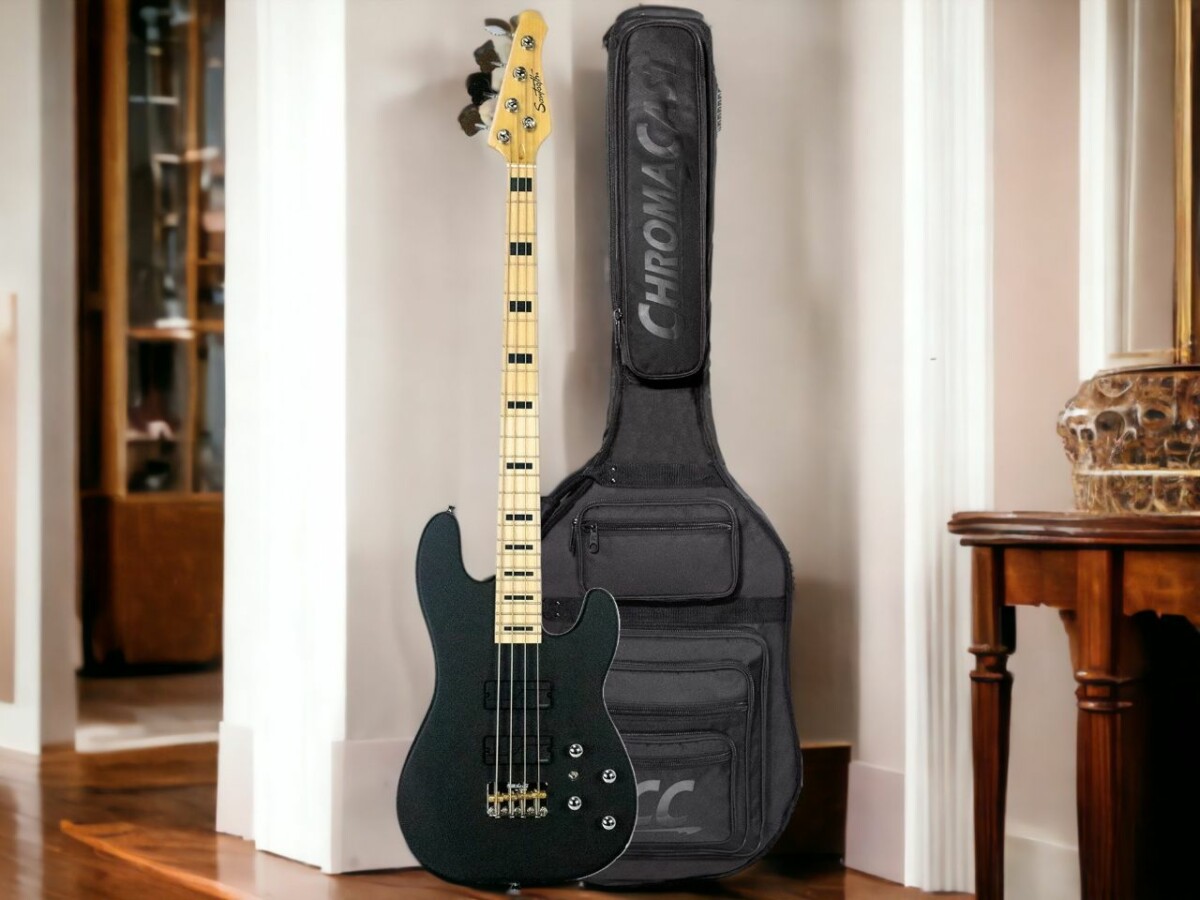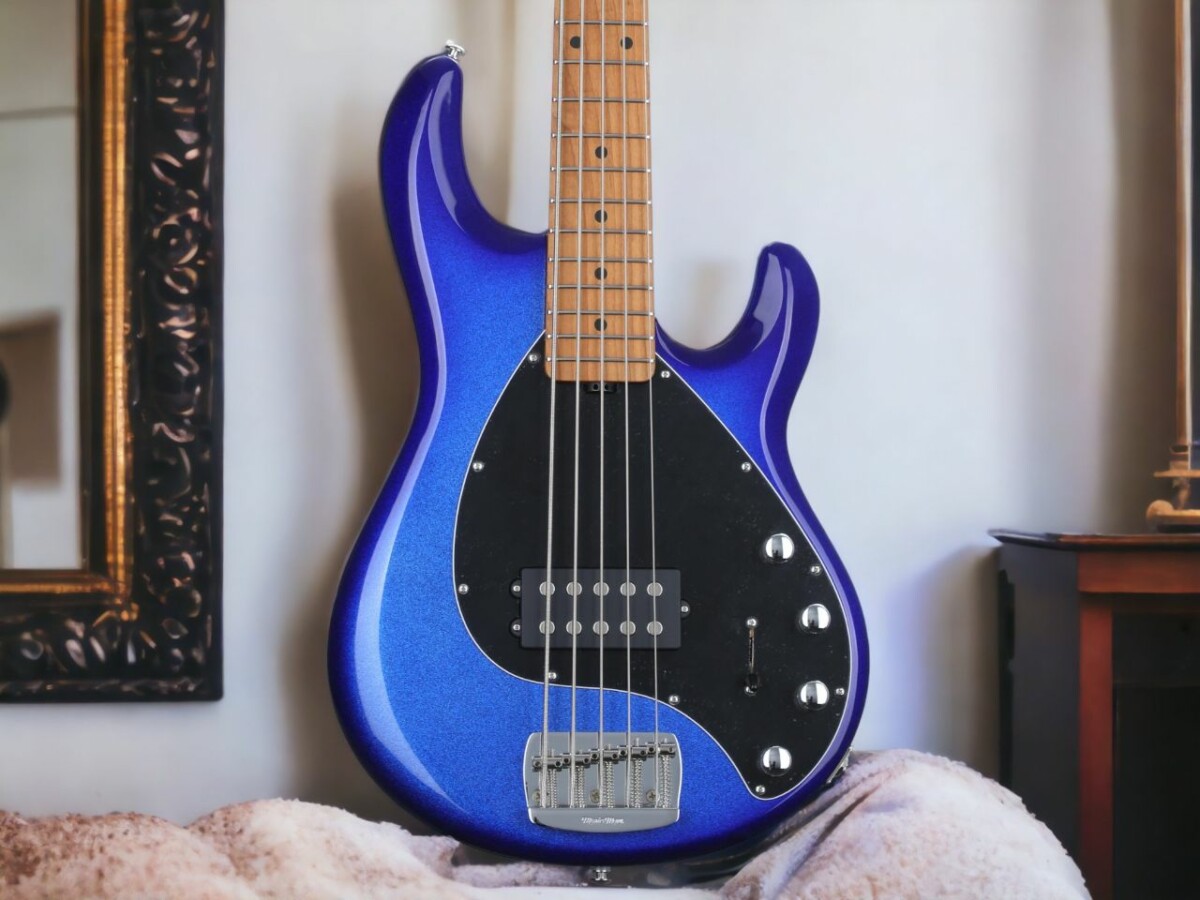Did you know over half of all musicians can’t bear the thought of parting with their instruments when they travel? If you’re all about that bass, you’re likely pondering the big question – Can I carry my treasured bass guitar on a plane?
Air travel with a bass guitar can seem like a labyrinth, but no worries, we’re here to guide you. This handbook is going to be your life-saver, breaking down airline rules, giving you the 411 on packing, and even guiding you through the maze of insurance options.
To keep it short – Yes sure, you can totally take your bass guitar with you on a plane. You’ll typically be able to bring it as a carry-on and store it in the overhead bins or under the seat, as long as there’s room. But be mindful, if your guitar is a bit too bulky or the bins are all filled up, the airlines might ask you to check it in. Safe travels with your bass!
The Advantages of Bringing Your Bass Guitar as a Carry-On
Taking your bass guitar on board as a carry-on when you’re jet-setting around? Smart move! There are loads of perks that can totally streamline your travel experience and keep your instrument in tip-top shape. But, hold up! You gotta be sure to double-check the size restrictions for bass guitars with your airline. Don’t want any unexpected hiccups at the last minute, right?
Thankfully, most planes are pretty accommodating and can fit a standard bass guitar in the overhead bin or those closets near the loo. Just remember to get there early to nab that space before it’s all taken.
As for keeping your bass safe and sound, investing in a hard-case is a no-brainer, and don’t forget a TSA-approved lock. You know, just in case. Got a bass that’s more than just a pretty penny? You might wanna think about getting it insured.
Oh, and here’s a pro tip: the change in temperature can mess with your bass, so it’s a good idea to loosen the strings a bit. And while you’re at it, throw in some moisture-absorbent packs in your case.
Follow these steps, and your bass guitar will be chilling safely on the plane, ready for your next gig.
To Loosen or Not to Loosen Your Bass Guitar’s Strings
So, you’re about to catch a flight with your bass guitar in tow. But then, this nagging thought pops up – to loosen the strings or not? It’s a common myth that the pressure changes on a flight can wreak havoc on your guitar because of the string tension. But here’s the real deal: it’s not exactly a requirement.
Now, the plot twist here is that temperature comes into play. A sudden cold snap can make your strings tighter, which isn’t the best news for your guitar. If you’re jetting off to a place where the weather’s going to be a lot different, it wouldn’t hurt to ease up on the strings a little. Wondering how often you should change your bass guitar strings? Check out this guide for more details.
Now, every airline has its own set of rules when it comes to instruments. A simple phone call to your airline can save you from any potential headache. So, better safe than sorry, right?
Gate Checking Your Bass Guitar: A Potential Solution
Thinking about hopping on a plane with your bass guitar? Here’s a little pro tip: consider gate checking your beloved instrument. If you’re wondering whether you should bring along your standard bass or your P-bass guitar, it’s good to understand the differences. This is a pretty easy and effective way to ensure your bass is safe and sound during your flight. Essentially, what happens is you hand over your axe at the gate, right before you hop on the plane. Once you’ve touched down and the wheels have stopped turning, you can pick it up from the same place. This way, your guitar gets to avoid a risky trip in the cargo hold.
So, here’s the lowdown on how to keep your bass safe and avoid it getting warped from temperature changes:
- Get your hands on a solid, hard travel case. This bad boy will shield your guitar from any knocks and bumps, and keep it safe from extreme temperature changes. Ever thought about giving your guitar a new look? Learn how to paint a bass guitar with our guide.
- De-tune your strings a bit. This helps keep your guitar from suffering tension damage when the temperature shifts.
- Pop some silica gel packs in the case. These little wonders suck up moisture, stopping humidity from wreaking havoc on your instrument.
Just a heads up though: every airline has their own rules, so you’ll want to do your homework before your trip.
The Importance of a TSA-Approved Lock for Your Bass Guitar
Traveling by air with your beloved bass guitar? Well, don’t just count on a sturdy, hard-shell case to keep it safe. You better get yourself a TSA-approved lock, too. Why, you ask? Well, it’s simple. It’s the difference between your bass guitar getting a friendly pat-down from TSA agents, or a lock-picking gone wrong that leaves your case (and maybe even your guitar) in shambles.
Yeah, you heard right. A TSA-approved lock lets the TSA peeps take a peek at your precious guitar if they need to, without wrecking your lock or case in the process. It’s pretty much a non-negotiable when it comes to properly storing your bass guitar when you’re up in the clouds.
Imagine the horror of discovering your guitar damaged, all because someone had to force open the lock. Now, that’s a nightmare scenario you’d want to avoid, right? That’s why a TSA-approved lock is a no-brainer. It’s all about striking the right balance – keeping your bass safe without making it impossible to access for necessary checks.
Insuring Your Bass Guitar for Air Travel
No matter how careful you are, it’s pretty essential to get your bass guitar insured before you fly. You know, because life happens and it’s always better to be safe than sorry. You don’t want to end up with a damaged guitar and a hefty repair bill at the end of your trip, right?
Here are some key things to think about:
- Insurance Policy: Find a solid insurance policy that covers everything from minor scratches to the worst-case scenario – total loss. You want to be prepared for anything that might come your way.
- Hard Shell Flight Case: This is your guitar’s best friend during travel. It’s like a superhero shield that absorbs shocks and keeps your guitar safe from crazy temperature changes.
- Documentation: Hold onto all the paperwork. Keep your receipts, appraisals, and even take some pictures of your bass guitar. If something unfortunate happens, these will make the claim process much smoother.
Just remember, getting your guitar insured is all about peace of mind. So, you can chill and enjoy your trip without constantly worrying about your guitar. After all, traveling should be fun, not stressful!





